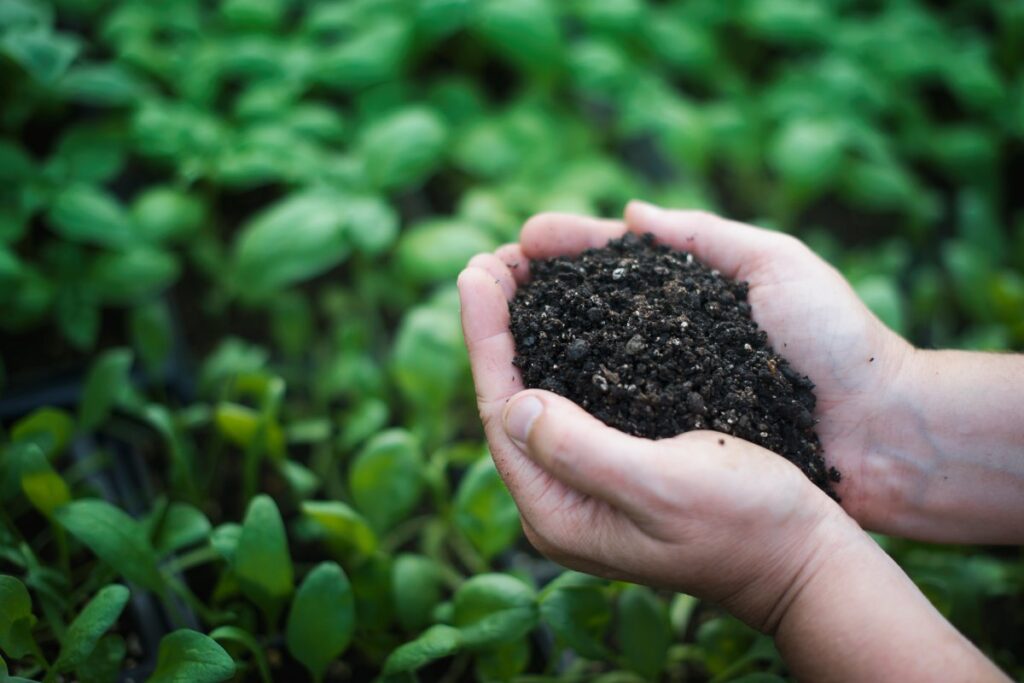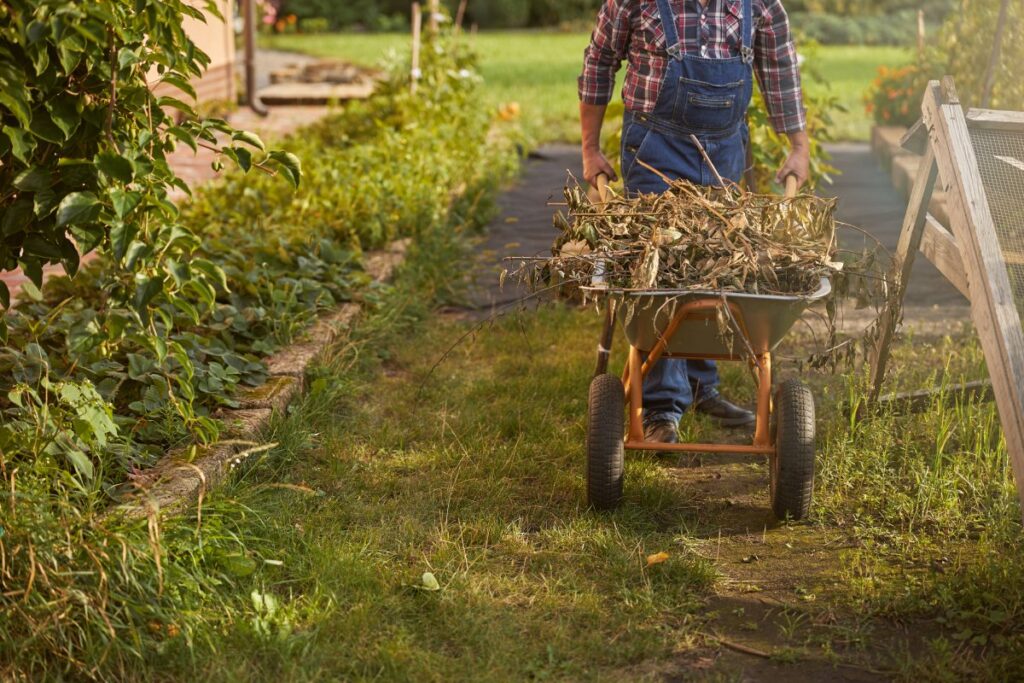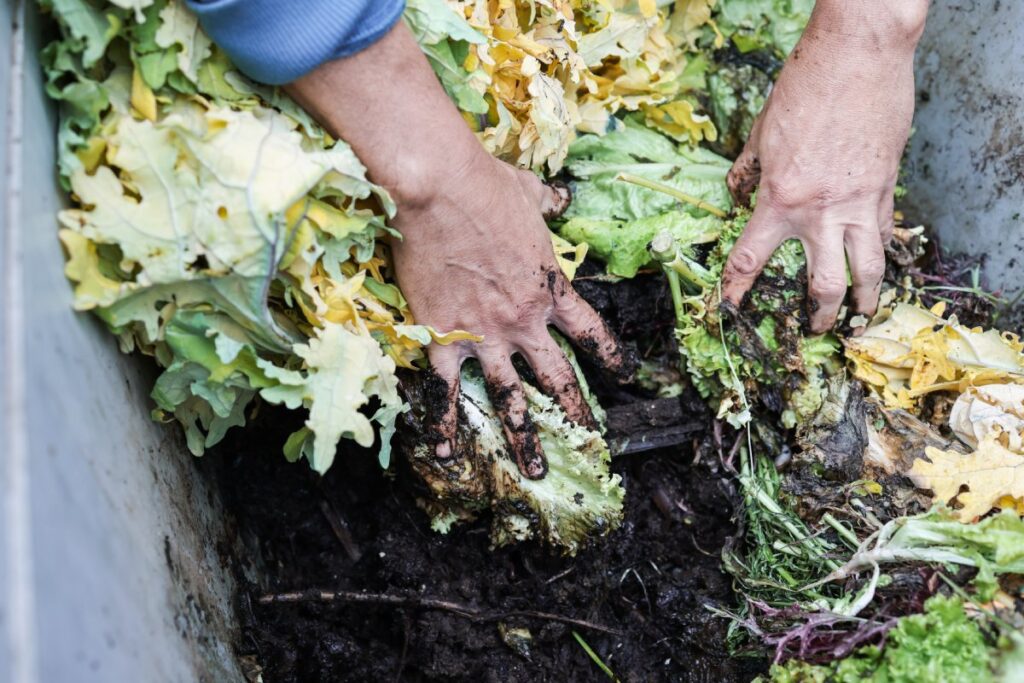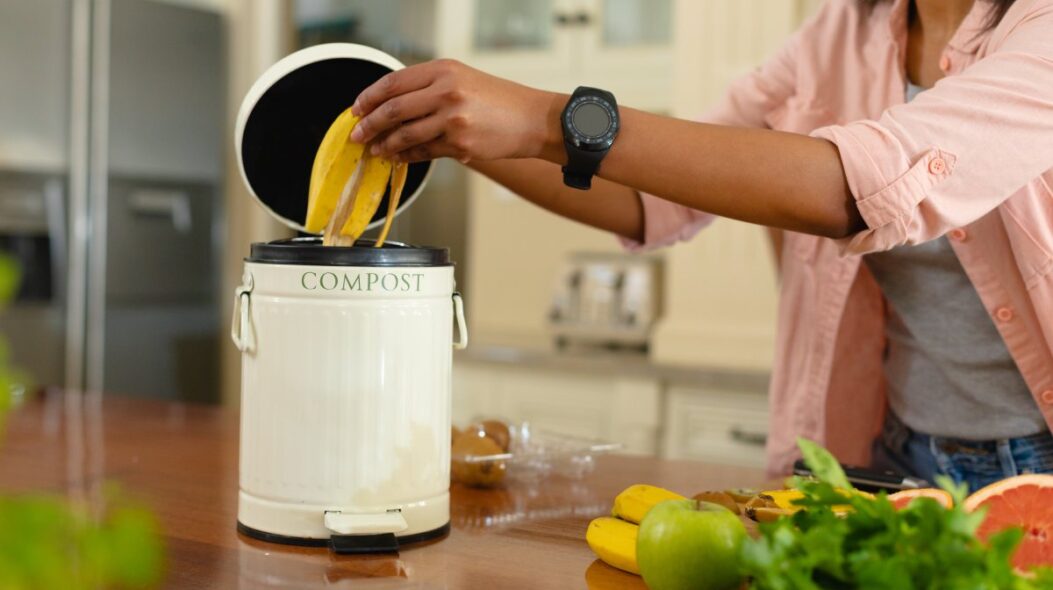Of all the different ways that you can reduce your carbon footprint, help the environment, and do something good for yourself and the planet, composting is arguably one of the best. The fairly simple act of changing your waste into fertiliser can reduce the amount of rubbish produced by your household hugely, and help you improve the soil quality for your garden at the same time.
Here we will take a good look at composting and help you get an idea of what it actually is, and how to get started in your own house.
What is composting?
Firstly, let’s take a look at what we mean by composting. This is the process of turning organic matter such as garden waste, foodstuffs, and even manure into fertiliser which can then be used to help plants grow stronger and healthier.
It is a way of recycling your leftovers and other materials so that instead of being chucked away, they can be used and made useful once more. Over a third of all the matter that ends up in landfills is organic and could have been composted. This would save valuable space, reduce the number of pollutants that escape, and all around make a huge difference to the environment.

A great deal of focus is spent on recycling products like glass bottles and plastic, but opting to start composting can in one stroke deplete your waste by over 30%, so you can see why it is such an impactful decision to make, and one that you will be glad you made.
Whether you compost at home or send your food waste to a larger composting site nearby, it is time to stop simply chucking away your leftovers in the bin, and join the millions of others who are trying to make a difference.
How does composting work?
When composting, you are looking to create the ideal conditions for the microbes in the soil or that you have added to break down the waste into its more basic parts. This then creates a rich and ideal fertiliser to be used to grow food or plants in their turn.
The right conditions can seem a little tricky to create. If you are going for classic traditional composting in your garden, you will need to find the right location. Somewhere flat with good drainage is key, so it doesn’t end up simply sitting in stagnant water, and some places may not have much space to have a large compost heap a fair distance from your door.

Another way of composting is to elect to get an electric composter instead. Electric food composters make it easy to create these conditions. Indeed, you only need to add the microbes the first time after which it is self-sustaining, and will turn your waste matter into compost in just a short amount of time.
You will need the right amount of heat and moisture, but not too much, to get the microbes working to the best of their ability, and oxygen is needed as well. Once they have what they need, they will get to work producing lots of lovely high-quality compost for your garden.
How do I start composting?
The first thing you need to do is decide on the kind of composting you wish, or have the ability, to do. If you have a huge garden with plenty of space, a compost bin or heap may be just the ticket. You should try to have it off to the side, mostly shaded, and try and be considerate of your neighbours.
On the other hand, if you are lacking somewhat space, an electric composter may be the best choice all around. They are much more compact, have a seal to prevent any smells so they can be kept anywhere, and are so quick to turn waste into fertiliser.
Once you have chosen your method, and have bought your electric composter or set up your heap outside, you will get to work on those perfect conditions mentioned above. For a compost heap, you can pile in your organic waste to get started, and it will need a vigorous turning regularly to keep the process going.
For an electric composter, you will merely add the amount of waste that you are allowed, the microbes, and watch it turn to fertiliser overnight. You can then take out the finished product and start again.

What is the easiest method of composting?
When it comes to composting the easiest method may depend on what it is that you are hoping to achieve. If you are looking to stick all of your waste in a pile somewhere out of sight, then a composting heap is arguably one of the best choices.
You can create this cold pile, and then more or less leave it to get to work over a period of around a year. It is a slow method but involves far less activity from you than hot composting or many of the other methods.
If you are looking for something a bit quicker, cleaner, and self-contained, then electric composting is the easiest and top method for you. Instead of having to aerate your compost pile, carefully balance the conditions, or wait for months for your fertiliser to be ready, the electric composter can do everything for you in just a few hours.
All you have to do is make sure you put in the right things, avoid the wrong ones, and sit back and relax. You won’t have to worry about a pile of smelly rubbish in your garden which can attract pests, and instead will get all of the rich high-quality fertiliser you want in no time at all.
The takeaway
There are a great many ways to compost, and many of them are straightforward and easy most particularly the electric composter. Composting is one of the best actions you can take both to reduce your own waste and help the environment, and you can also make cheap and easy fertiliser to keep your garden looking as green as your actions are.
